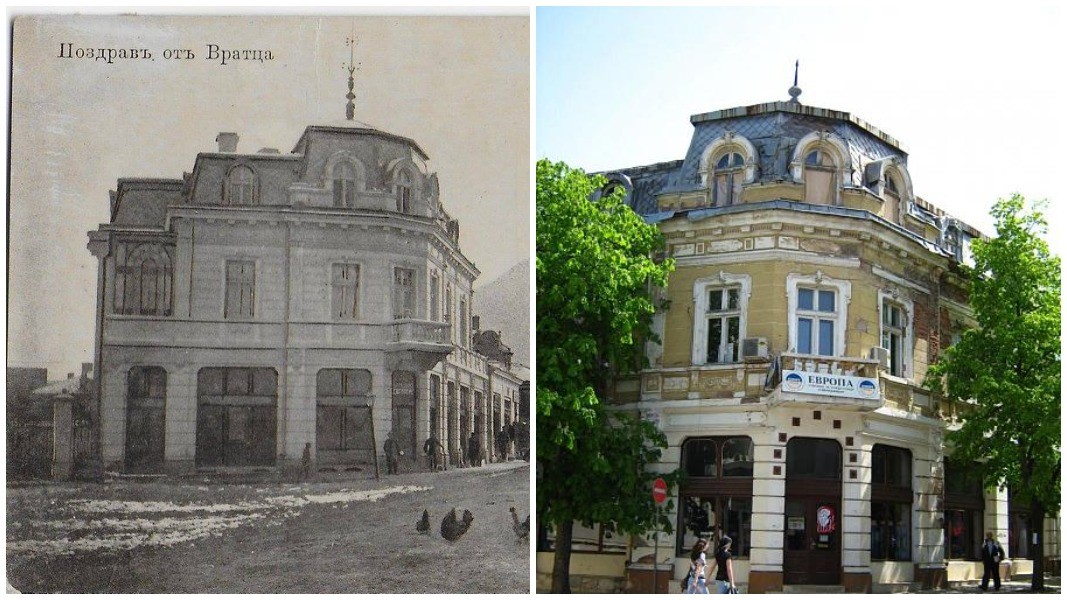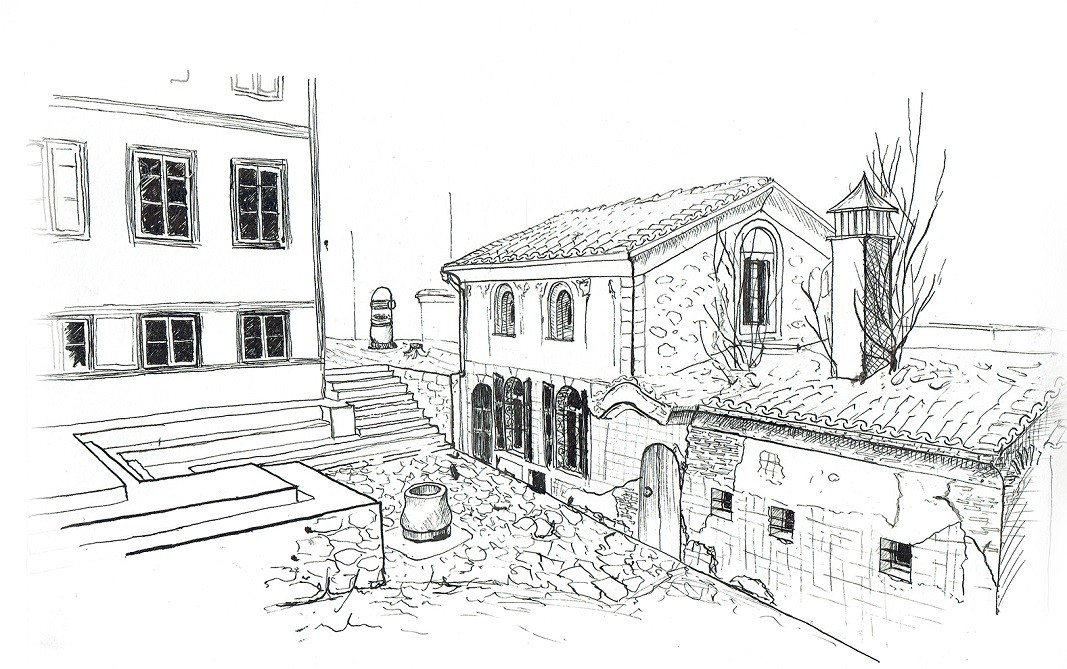Graduate students preserving cultural heritage from Ecole de Chaillot, a specialized school in architectural studies for preserving cultural heritage, will be presenting their graduation projects in the Regional Museum of History in Vratsa (Northwestern Bulgaria) until July 29th, and then in Sofia and Plovdiv. The exhibition called “The Chaillot Adventure” presents 13 cultural monuments from different periods (Ottoman, Bulgarian Renaissance, the Post-liberation period and even contemporary) scattered across the whole of Bulgaria, as well as preservation and restoration methods. Archtitect Veselin Aleksiev talks to Radio Bulgaria about the cultural heritage and its preservation. He also presents his project, part of the exhibition - “Skachokovatakushta”, or Skachokova house, as an architectural masterpiece in Vratsa:

“In the beginning of the 20th century, the house was located on a merchant street with numerous stalls, shops and workshops, which can still be seen today in an almost authentic form. Built in 1910, the house is a bright representation of the Vienna Secession, due to its strong influence. No expenses were spared during the construction, only the best materials for the time were used. A reinforced concrete structure was put into place, making it one of the first buildings in Bulgaria to use this type of architecture. The luscious mosaics with classical symbols as well as the grand staircase have been preserved. The house was owned by Angel Skachokov, who, before acquiring it, was Vratsa’s mayor for a short term. It has three floors, and apart from the living area, there was a bureau and a shop. Prior to WWII, the official suits of the residents of Vratsa were sewed there, using fabrics imported from England and Austria. Despite being used by multiple tenants, some of whom not quite conscientious, for the past few decades, the Skachokova house remains among one of the most imposing buildings in Vratsa, and is one of the town’s symbols.”

The houses of high cultural significance can become time machines, through which the details of our predecessors’ daily life can be studied and understood. Architect Veselin Aleksiev says that, in order for this to happen, however, some political willpower is needed. According to him, more work is needed in various directions – education of experts in restoration and analysis, through which the concept of cultural tourism can be developed.
“I do not see an issue in developing cultural tourism without harsh interventions in the authentic environment. In order for a monument from a bygone era to keep up with the modern time and be sustainable, it needs to be attributed with a new function. However, a more global approach is needed – clear strategies on the governmental and local level. The experts need an opportunity to provide an environment suitable for the preservation of the authentic atmosphere, which then needs to be presented in a suitable manner for it to attract tourists.”
The buildings can be renovated to their initial appearance, explains Architect Aleksiev. This would be cost-consuming not only due to the materialsrequired, but also because the suitable experts need to be found, since a substantial part of the knowledge about the techniques used has disappeared along with the people. Nevertheless, there is potential for restoration, and Veselin Aleksiev gives the example of France, where the maintenance of monuments is a governmental policy – the society has realized that culture brings profits. Hence, master craftsmen are educated on the various techniques of construction used in the bygone historical periods. The work of a restorer is in no way boring and cannot be limited to a number of technical issues, Veselin Aleksiev believes.

“We need to get into the shoes of the people from the past and understand their reasons for doing things in a manner that may not seem as logical today for us. We need to approach the issue as detectives, which is extremely interesting and a bit addictive, I would say, and that is the best part. We search for analogies and living witnesses. Frequently, there are numerous things missing from the archives. It is important to coordinate the work of many different specialists. The hardest job, however, is to convince the owners - private individuals, municipalities and institutions – that there is a point in investing in the cultural heritage.”
English Boris Totchev
With Rosencrantz and Guildenstern Are Dead , young Boyan Kracholov - one of the most compelling contemporary Bulgarian theatre directors - makes his debut on the main stage of the Ivan Vazov National Theatre. Kracholov won the 2017 Askeer Award in the..
A thirty-six-hour theater and film marathon will be presented to audiences in Sofia by the students of the National Academy for Theatre and Film Arts "Krastyo Sarafov". The 20th anniversary edition will take place from today until Sunday...
"Tableware", "assembly line", "production process" - this is the terminology of the so-called applied artists of 20th century Bulgaria. But one artist, trapped within the confines of a socialist factory, broke free and gave wings to her talent...
A feature film is being made about the life of Lili Ivanova, the team of the biggest name in Bulgarian pop music announced. The film has the working..
"Tableware", "assembly line", "production process" - this is the terminology of the so-called applied artists of 20th century Bulgaria. But one artist,..
A thirty-six-hour theater and film marathon will be presented to audiences in Sofia by the students of the National Academy for Theatre and Film Arts..

+359 2 9336 661
